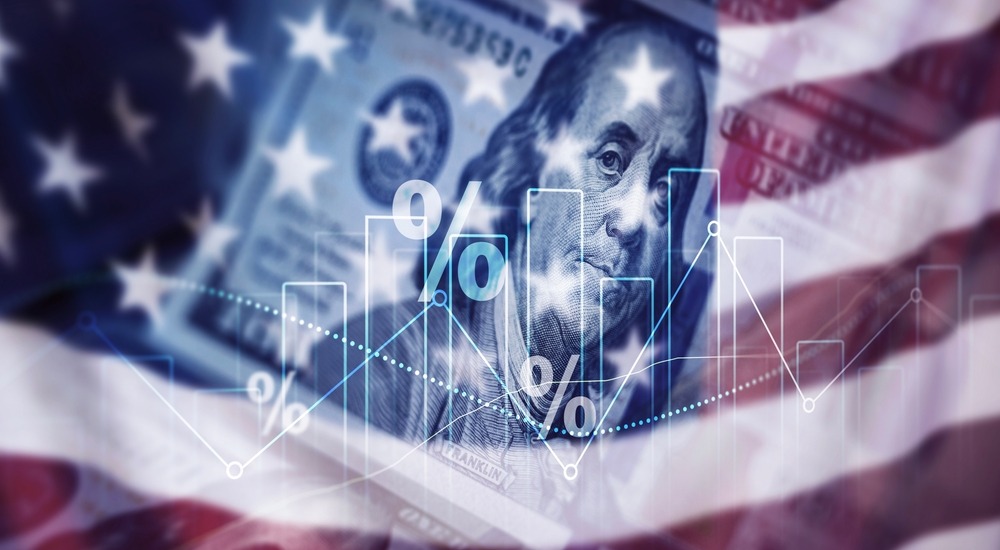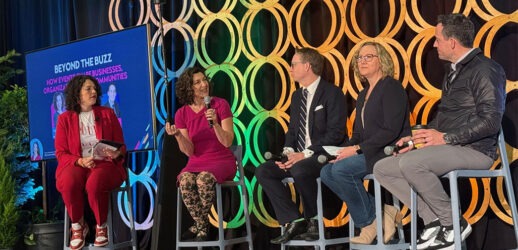After the Trump administration announced $2.5 trillion in tariffs on imports of items used at conferences such as aluminum, paper and copper, events industry organizations issued statements pleading for relief based on the importance of conferences and events.
The message coincided with Global Meetings Industry Day on March 3 and the build up to U.S. Travel Association’s Destination Capitol Hill annual advocacy push for modernization to unlock a new Golden Age of Travel in advance of the 2026 FIFA World Cup and 2028 Summer Olympics.
Concern About Rising Event Costs
Tommy Goodwin, executive vice president with Exhibitions & Conferences Alliance (ECA), released a statement saying the executive order introducing new reciprocal tariffs on U.S. trading partners has led to “significant concern” within the U.S. business and professional events industry.
“These tariffs will increase costs for business and professional event organizers, exhibitors and attendees alike. They also send a signal to international exhibitors and attendees that the U.S. is closed for business.”
Read More: A Q&A with Fred Dixon on the Enduring Importance of Hospitality
He pointed out that tariffs will particularly harm small businesses, which account for 99% of industry companies and 80% of all exhibitors. Then he shared the economic impact of the events industry—2.63 million American jobs and $426.1 billion in spending estimated for 2025 in the United States. “That’s why the ECA opposes these new tariffs, which will negatively impact our collective ability to drive economic growth, support job creation, empower small businesses and help to solve our most urgent societal challenges,” he said.
Read More: Essential! Support the $1 Trillion Meetings Industry, Restart America
A Plea to Consider Big Picture Impacts
The Live Events Coalition (LEC) that came to life during the pandemic to advocate for the wellbeing of all parts of the industry, including corporate events, sporting events, fairs and festivals and performances, has been reanimated to address recent threats to all of the above.
Reached the day after GMID, LEC President Nancy Shaffer stressed the importance of working together to support the message LEC VIC Chair and Government Affairs Wendy Porter is doing along with Marketing and Communications Director Al Mercuro, Government Affairs Chair Dwayne Thomas and Treasurer Russ Callahan.
LEC released a statement putting a face to the 12 million people working to keep 1.2 million small businesses alive. “These aren’t faceless numbers—they’re the planners, producers, AV techs, stagehands, riggers, exhibit houses, lighting designers, scenic builders, show callers, rental companies, decorators, caterers, transportation teams, translators, musicians, photographers, florists and thousands of freelancers who bring events to life every single day,” the statement read.
It called the newly announced tariffs “yet another blow to the live events ecosystem”—an industry already grappling with a 38% increase in costs since 2019.
It pointed out that tariffs on imported goods drive up the cost of everything from staging and signage to food, entertainment technology equipment and travel. “When those costs rise, we see a domino effect: corporate travel freezes, marketing budgets tighten, sponsorships shrink and internal and external events are the first to go.”
The statement stressed that those business losses don’t just hurt the meetings industry. It hurts every industry that relies on events to drive brand visibility, thought leadership, lead generation, employee engagement and revenue. “The downstream impact is real. Events aren’t a line item to slash—they’re a critical lever for growth,” according to Shaffer.
“We urge policymakers to understand the full reach of this decision. Undermining the live events industry doesn’t just threaten jobs—it threatens the very platforms that help American businesses grow, connect, and thrive,” the statement concluded.
What Individual Planners Can Do
Goodwin vowed to work with member associations, coalition partners and other stakeholders in Washington, D.C., to advocate for trade policies that will strengthen the competitiveness of the U.S. business and professional events industry going forward and allow us to continue to serve as a growth engine for the U.S. economy.
He suggested aligning with ECA Advocacy Network’s email action center and following the ECA Tariff Resource Center on the ECA website with the latest news impacting the industry.
The U.S. Travel Insights Dashboard is a real-time source for travel trends and intelligence about where the economy is heading.




